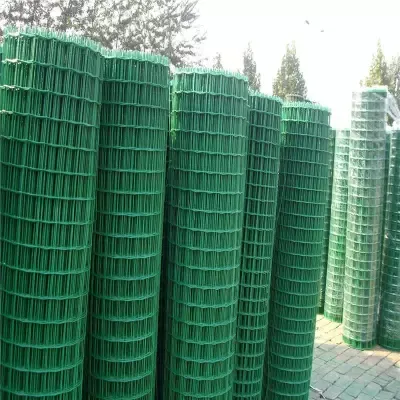Aug . 14, 2024 13:07 Back to list
Exploring the Unique Properties and Applications of Soft Iron Wire in Modern Industries
The Significance and Applications of Soft Iron Wire
Soft iron wire, often regarded for its unique properties, plays a crucial role in various industrial and commercial applications. Soft iron is a low-carbon iron that exhibits high magnetic permeability, making it a preferred material in the manufacture of electrical components, structural materials, and decorative items. In this article, we delve into the characteristics, manufacturing process, and applications of soft iron wire, highlighting its significance in contemporary technology.
Characteristics of Soft Iron Wire
Soft iron is distinguished from other types of iron primarily due to its high ductility and malleability. This means that it can be bent or shaped without breaking, which is essential for many applications that require intricate formations. Moreover, soft iron possesses a high saturation magnetization and low coercivity, which allows it to be magnetized easily and to lose its magnetism when the applied magnetic field is removed. These properties make soft iron wire a valuable material in the production of electromagnetic components.
The wire itself is available in various diameters and lengths, tailored to meet the specific requirements of its intended use. The malleable nature of soft iron wire allows it to be easily processed through techniques such as drawing, twisting, and coiling, enabling manufacturers to create customized solutions for diverse applications.
The Manufacturing Process
Soft iron wire is typically produced through a process that involves heating low-carbon iron to a malleable state and then drawing it through a series of dies to achieve the desired thickness. The heat treatment process not only enhances the mechanical properties of the iron but also helps to maintain its soft characteristics, ensuring that the wire remains ductile and easy to work with. After the drawing process, the wire may undergo additional treatments such as annealing to further refine its properties and improve its conductivity and magnetic characteristics.
soft iron wire

Quality control during the manufacturing process is vital, as impurities or variations in carbon content can significantly affect the wire's performance. Rigorous testing for tensile strength, ductility, and magnetic properties ensures that the final product meets industry standards and customer expectations.
Applications of Soft Iron Wire
Soft iron wire finds its application across various sectors, primarily in electrical engineering and construction. In electrical applications, the wire is often used to create solenoids, transformers, and inductors, where its magnetic properties enhance efficiency and performance. The wire can also serve as a core material in electromagnetic devices, improving their magnetic field generation while keeping costs manageable.
Additionally, soft iron wire is widely utilized in the construction industry for reinforcement purposes. It can be used in scaffolding, fences, and various forms of structural support, where its strength and flexibility provide essential support while allowing for ease of installation.
In the realm of decorative applications, soft iron wire is frequently employed in artistic endeavors and crafts. It can be shaped into intricate designs for jewelry, sculptures, and various decorative items, appealing to both artisans and manufacturers alike.
Conclusion
In conclusion, soft iron wire is a versatile and indispensable material in numerous industries. Its unique properties—high magnetic permeability, ductility, and malleability—make it ideal for a wide range of applications, from electrical components to structural reinforcements. As technology advances and the demand for high-performance materials grows, soft iron wire will undoubtedly continue to play a vital role in innovation and design, proving its significance in both traditional and modern applications. The ongoing exploration of its properties may even lead to new and exciting uses in the future.
-
The Role of Field Wire Fence in Grassland Conservation
NewsJul.15,2025
-
Stainless Steel Razor Wire Durability in Coastal Environments
NewsJul.15,2025
-
Enhancing Home Security with Mesh Fences
NewsJul.15,2025
-
Diamond Mesh Wire for Small Animal Enclosures
NewsJul.15,2025
-
Common Wire Nail Tensile Strength Testing for Woodworking
NewsJul.15,2025
-
Barbed Wire Corrosion Resistance Galvanization Techniques
NewsJul.15,2025









